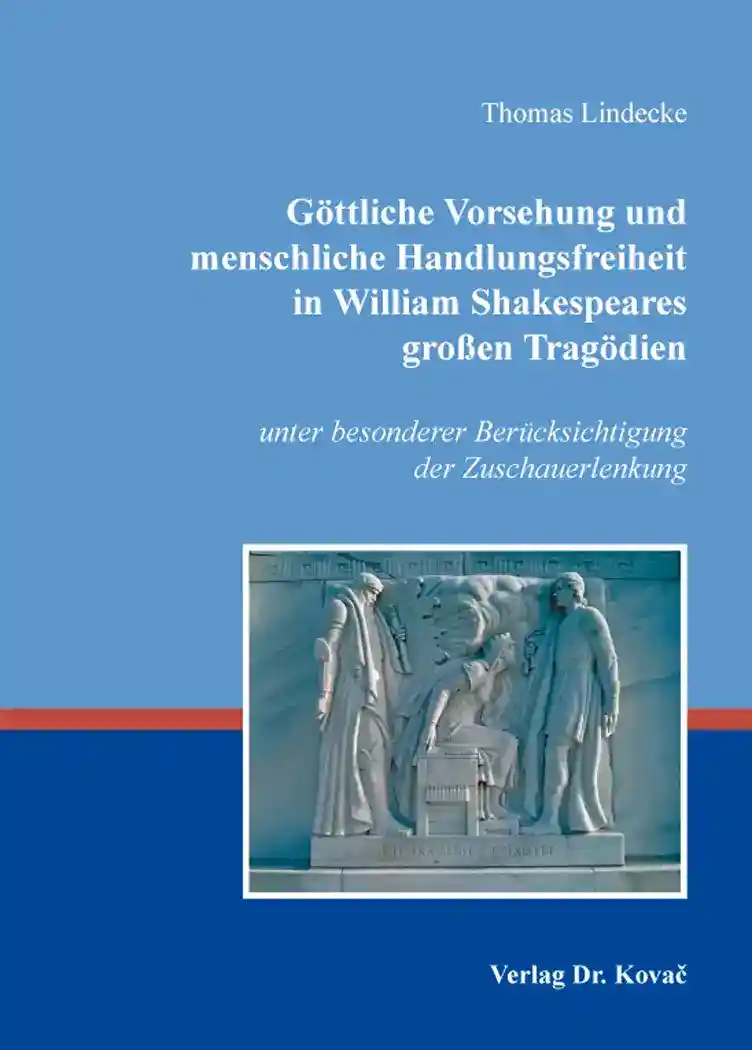Thomas LindeckeGöttliche Vorsehung und menschliche Handlungsfreiheit in William Shakespeares großen Tragödien
unter besonderer Berücksichtigung der Zuschauerlenkung
Studien zur Anglistik und Amerikanistik, volume 27
Hamburg 2014, 324 pages
ISBN 978-3-8300-8058-9 (print) |ISBN 978-3-339-08058-5 (eBook)
About this book deutschenglish
There’s a divinity that shapes our ends, ,
Rough-hew them how we will –,
(Hamlet, V, ii, 10-11)
In this text-based study, it is examined how William Shakespeare thematises and confronts the conflict between divine Providence and human freedom of action in his four great tragedies Hamlet, Othello, King Lear and Macbeth. The differentiation between various means of communicating perspectives, e.g. characters, plot and imagery, facilitates the estimation of the author’s intended reception of the works as well as the ability to prove the playwright’s position on this issue. A special focus of this research is the guidance of the audience who Shakespeare confronts with complex realisations. Thomas Lindecke analyses how the dramatist negotiates ideological discrepancies of the Elizabethan Age by depicting divine influence and human action entailing the spectrum of orthodox viewpoints and provocative tendencies of secularisation. Furthermore, the study explores Shakespeare’s representation of mankind’s moral responsibility against the contemporary background of humanism and discloses his view on the challenging aspect of justice in an era constituting a significant revaluation of man.
Link des Autors
Kontaktmöglichkeit
Keywords
AnglistikElisabethanisches WeltbildGöttliche VorsehungGottHamletHandlungsfreiheitHumanismusKing LearLiteraturwissenschaftMacbethOrthodoxe KulturOthelloReligionWilliam ShakespeareZuschauerlenkungIhr Werk im Verlag Dr. Kovač

Möchten Sie Ihre wissenschaftliche Arbeit publizieren? Erfahren Sie mehr über unsere günstigen Konditionen und unseren Service für Autorinnen und Autoren.
